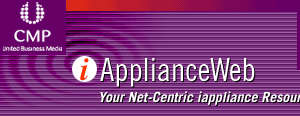



 |
 |
|
|
 |

|
||
|
|
|
|
|||

|
Philips Electronics Audio Jukebox: More than just another MP3 playerby
The recently introduced HDD120 MP3 Jukebox, and its little brother, the HDD070, from Philips Electronics are not as pretty or as flashy as some of their competitors. But they have features, capacity and size that will make them more than just digital music players. Journalists, for example, will find them useful tools in the Web-dominated world where audio and video are as important as the printed word.
Traditional tape recorders were developed originally for music recording and playback by audiophiles but rapidly became the tool by which journalists did their interviewing. A similar trend may be emerging with the new extremely high density flash and hard disk drive based audio jukeboxes. Leading that trend, will, I think, be Philips with its HDD070 and 120 devices. Right now with its' new jukeboxes, based on the new sub-3.5 inch hard disk drives emerging in a variety of CE devices, Philips Electronics' marketing focus is on the mass consumer market for MP3 download and playback devices. This is especially so with its HDD070, which holds about 1.5 Gbytes (375 MP3 tracks) and weighs just 95 grams. It measures 64 x 106 x 20 mm, just about the size of a standard credit card, albeit a little thicker. To review track information, users are provided with a 2-bit grey, 128 x 96 pixel LCD screen. It is also capable of data file storage, making it useful as a portable external drive as well. To appeal to the mass market of music downloaders, it features SuperPlayT, which allows a user to at a button's touch play music quickly without first having to select playlists or individual tracks. By selecting a category, such as 'Albums' or 'Artist,' and then pressing the 'Play' button, the user can listen to all the music that is stored under these top-level music library categories. Also targeting the same consumers is the HDD120. At the high end the HDD120 features a 20 GB storage capacity, capable of holding more than 5,000 MP3s and 10,000 WMA songs. To take advantage of downloads from a PC, the HDD120 operates through a high-speed USB 2.0 connection, allowing it to be attached to your main computing platform and be viewed and accessed the same way you do any other hard drive. Only slightly larger than its HDD070 sibling, the HDD120 features an extended battery life feature that provides more than 10 hours of playback time. These features, plus the fact that allows the user to record voice memos via the built-in microphone turn it, in effect, into a high quality voice recorder with extremely long recording times. Making it even more attractive to journalists who work in the online environment of text, video and audio is a SuperScroll navigation interface enables fast and precise navigation to the exact recording on the disk. Its' keys have two-level functionality: holding down either the 'up' or 'down' button activates a scroll accelerator that allows super-fast navigation through the list of stored songs. The user also can find tracks through any preset category: Playlists, Artists, Albums, Genres, All tracks and, with the HDD120, Recordings. But you are not stuck with these categories: you can reprogram the device to change these default categories. Each of these portable hard disk audio jukeboxes incorporate a Digital Music Manager, a PC based software program that allows users to easily manage and transfer music from their PC. For the HDD120, there is an additional feature called EQ Link, which enables users to change the equalizer settings and even rename the presets to suit their own listening preferences. The user can link these new equalizer settings to be activated with specific genre. Priced over a range form $150 to $350, such MP3 players and recorders are more expensive than the sub-$100 mechanical tape recorders now available. But this additional cost must be weighed against what it will save a working journalist. For one thing, being able to store everything on your desktop computer in digital audio form means that now you can get rid of those many tens or hundreds of audio cassettes that are gathering dust on the desk or in the closet. Moreover, it allows you to easily manage and access these audio files when needed. The fact that it saves the audio files natively in MP3 form also eliminates a number of steps for publishing audio on a web publication. First, you do not have to convert from one audio format to another, more appropriate for the Web. And the process of picking the right segment for broadcast is eased by the Superscroll interface. Further fine-tuned editing is possible with any number of low cost audio editing programs now available. When working on a written story, such programs, with SuperScroll, allow a journalist to move back and forth in the audio while transcribing. Ideally, however, what would be really useful is the equivalent of a professional transcribing function similar to what is available for audio tapes, especially the foot controls for pausing, back spacing and fast forward. Although not available with the Philips' Jukeboxes, there are a number of such solutions, available ranging from about $100 to $250. Even when added to the cost of the basic unit, the productivity enhancements this brings to the working Web journalists are worth the additional costs. Pricing and Availability Currently available online and through retail outlets, the HDD070 has a suggested retail price of $199.99 while the HDD120 is $349. (For access to more than 4,500 other hands-on product reviews on all variety of wired and wireless appliance and consumer devices, go to the iAppliance Web Portal Page. )
|
|
|||||||||||||||||||||||||||||||||||||
|
Terms and Conditions Privacy Statement |
|||||||||||||||||||||||||||||||||||||||